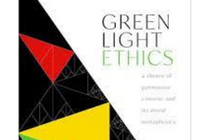By Jessica Weiss ’05
John Horty, professor of philosophy and affiliate professor in the Institute for Advanced Computer Studies and the Department of Computer Science at the University of Maryland, has been awarded a Humboldt Research Award by the Alexander von Humboldt Foundation of Germany.
The award, named after the late Prussian naturalist and explorer Alexander von Humboldt, recognizes leading researchers of all disciplines across the world in recognition of their academic record to date. To promote international scientific cooperation, award winners are invited to spend a period of up to one year collaborating on a long-term research project with colleagues at a research institution in Germany.
Horty is an internationally known expert on several topics that connect philosophy, logic and artificial intelligence (AI) and he was among the first philosophers to apply methods from computer science to philosophical questions concerning legal and moral reasoning. In recent years, his work has focused on the growing field of “machine ethics” or “humane AI,” whose goal is to develop the—conceptual and technical—framework needed to advance AI in a way that is ethical and that promotes human wellbeing. Horty’s work seeks to show ways in which autonomous AI systems can engage in normative reasoning in real time. That work could eventually help to make computational tools that would assist people in their thinking about legal and moral problems.
Horty is the author of three books as well as papers on a variety of topics. He has received three fellowships from the National Endowment for Humanities and several grants from the National Science Foundation. He has also held visiting fellowships at the Netherlands Institute for Advanced Studies and at the Center for Advanced Studies in Behavioral Sciences at Stanford University. His forthcoming book will focus on the logic of precedent. He is also working with colleagues across campus to organize a center on “Ethics and AI” at the University of Maryland.
Horty earned his doctorate in philosophy from the University of Pittsburgh. He holds a bachelor of arts in philosophy and classics from Oberlin College.






